Are you puzzled by your dog’s strange behavior when it comes to feeding time? Does he bark excitedly at his food or seem scared of it? If so, you’re not alone. Many pet owners are faced with similar questions about their pup’s odd reactions to meals.
The good news is that there is a logical explanation behind why dogs act this way and understanding the root cause can help us better manage our furry friends’ behavior during mealtime. In this article, we will explore the reasons why dogs bark at their food and what steps can be taken to prevent this from happening in the future.
Questions To Ask Yourself When Your Dog Barks At His Food
- Is my dog hungry? Dogs have a natural instinct to hunt and scavenge for food, so if your pup hasn’t been fed in a while, he may be expressing his hunger through barking.
- Could my dog be scared of something? If there are other animals or people in the vicinity that could be scaring your pup, then he could be barking out of fear.
- Is my dog trying to protect his food? Dogs are territorial by nature and may bark if they feel their resources are threatened. [1]
Likely Reasons That Dogs Bark At Their Food
There are many possible explanations for why dogs bark at their food.
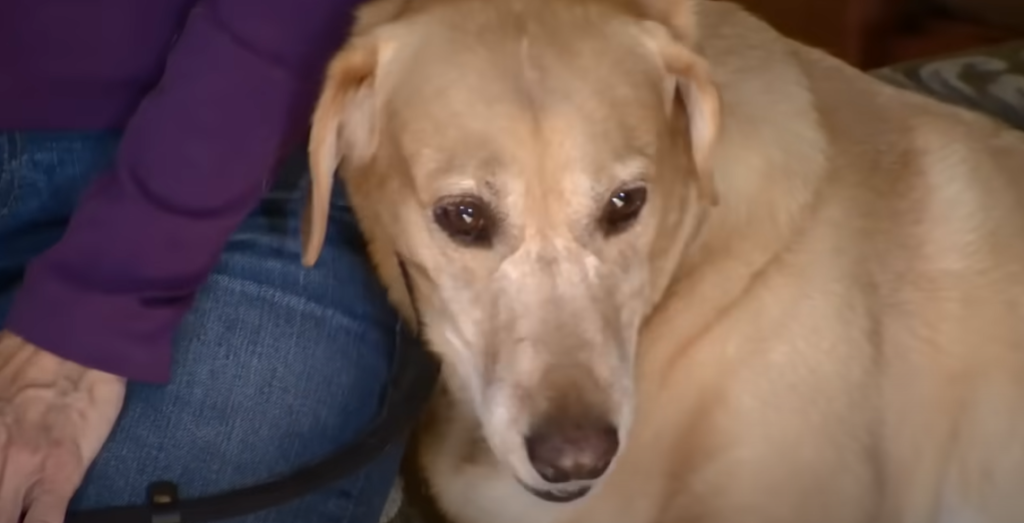
The Dog’s Food Was Changed
If your dog’s food was changed recently, it may be the cause of his barking. Dogs are creatures of habit and may feel uncomfortable if their regular diet is suddenly altered. If you switch up their food, they may bark in response to something that’s unfamiliar to them.
The Dog Feels Threatened
When a dog barks at his food bowl, it could be because he feels threatened. This barking is usually seen when there are other animals in the house or around the bowl. The dog may feel like he has to defend himself and protect his food from any potential competitors. The reason behind this behavior can range from fear of being attacked, to just feeling a need to be dominant over the other animals.
The Dog Is Excited To Eat
Most of the time, when a dog barks at his food bowl, it’s because he is excited to eat. This is especially true for puppies and dogs who are still new to their environment as they may feel anxious or overwhelmed by the experience. Dogs also bark in excitement when they are anticipating something pleasurable like getting their dinner. The barking can be a way of expressing their enthusiasm and excitement.
The Dog Is Scared
It’s not uncommon for dogs to bark at their food. For a lot of them, it’s simply a defense mechanism that helps protect them from potential predators or unfamiliar people in the environment. Dogs want to make sure everyone knows they are claiming what is theirs and that no one is going to take it away. If your dog barks at his food, it may be because he is scared or anxious about the situation. He wants to make sure that you and anyone else in the environment knows that this is his and he doesn’t want anyone to take it away from him. More often than not, barking at food is a sign of insecurity and fear.
The Dog Is In Pain
A common reason that dogs bark at their food is because they are in pain. If your dog suddenly starts barking at their food or water bowls, it’s possible that something has caused them pain. It could be arthritis, joint pain, an ear infection, or another physical issue that causes discomfort when they approach the bowl. If this is the case, it’s important to take your dog to the vet for an examination and treatment.
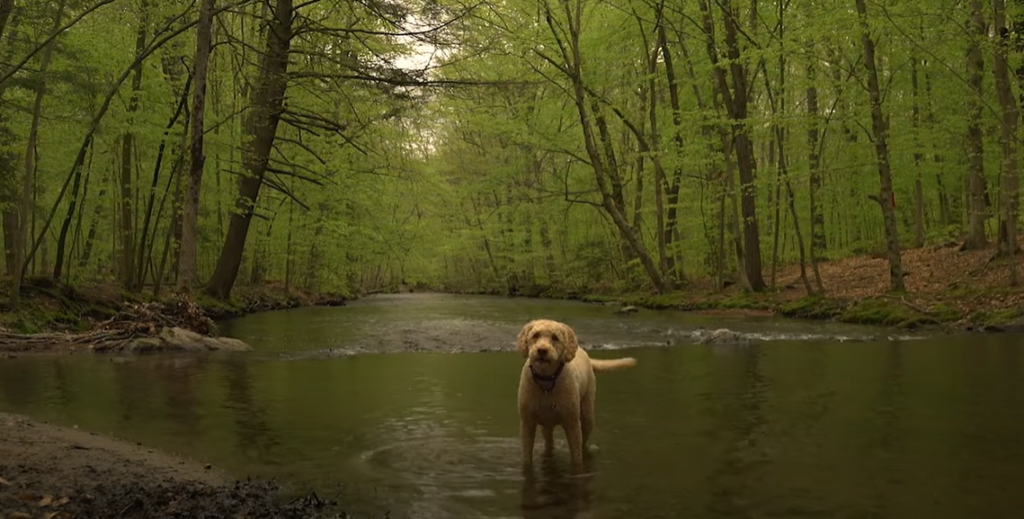
Your Dog Has Separation Anxiety
Separation anxiety is one of the most common causes of excessive barking when it comes to dogs and their food. Dogs, in general, are pack animals and crave companionship. When a dog is isolated from other animals or people he loves, he may bark excessively at his food to express his distress. This type of behavior usually occurs if your dog has been left alone for extended periods of time without any company or play. It is important to recognize this behavior as an expression of loneliness and fear, rather than aggression.
The Dog’s Schedule Is Off
One of the most common reasons why a dog barks at their food is if their mealtimes are irregular or unpredictable. Dogs, like humans, thrive on routine and predictability. When meal times become sporadic or inconsistent, it can make them feel anxious and cause them to bark out of frustration. To prevent your pup from barking at his food, it’s important to stick to a consistent feeding schedule. Feeding your pup at the same time and in the same place each day will help him feel more comfortable and secure.
The Dog Is Bored
A common cause of barking at food is boredom. Dogs are intelligent, social creatures that need mental stimulation and physical activity to stay healthy and happy. If your dog spends too much time alone without engaging in activities like walks or playing games, he may start barking as a way to entertain himself. This type of behavior can manifest itself at mealtime, as your pup may be so eager to get out of the house and be active that he barks every time his food is presented. To help remedy this issue, make sure your dog gets plenty of exercise and has access to challenging toys or puzzles to keep him occupied throughout the day. Additionally, spending time with your pup can be beneficial for both of you. Give him lots of affection and use positive reinforcement training to help reinforce desired behaviors.
The Dog Has A Health Issue
A dog barking at its food can be a sign of a health issue. Some conditions that may cause this behavior include gastrointestinal disorders, allergies, and even infections. If your dog is exhibiting signs of distress when it comes to mealtime, it’s important to take him to the vet for an evaluation as soon as possible. The vet will be able to determine the cause of your dog’s distress and provide appropriate treatment. In addition to medical issues, there may be environmental causes for your dog’s barking. For instance, if another pet or person is taking food away from him, he may start barking to protect his food. Alternatively, some dogs bark when they feel threatened or anxious in a new environment. If the dog feels comfortable and secure with its surroundings, the barking behavior may stop.
The Dog Has A Behavioral Issue
It’s important to note that there are some underlying behavioral issues that could be causing a dog to bark at his food. If a dog has been taught to guard their food, they may bark as a sign of aggression or possessiveness. This is especially true if the dog is left alone with their bowl and not properly supervised when eating. Additionally, if a dog is anxious or excited around meals, they may vocalize their feelings of anticipation. Other behavioral reasons a dog may bark at their food can include attention-seeking behavior or begging for extra treats. If the barking continues even after the issue has been addressed and corrected, it’s best to consult a professional, such as a veterinarian or certified trainer for advice on how to address this issue. With patience and proper training, you can help your dog learn to be more relaxed and comfortable around mealtime. [2]
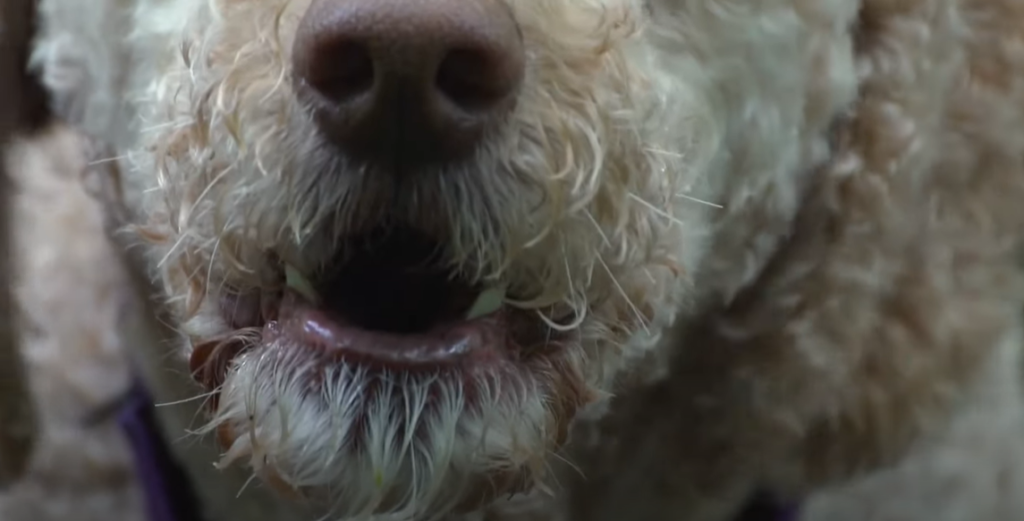
Ways To Get Your Dog To Stop Barking At A Bowl Of Food
- Use positive reinforcement methods: It is important to reward your dog for good behavior. Whenever your dog eats his food calmly and quietly, be sure to offer praise or treats as a reward. This will teach him that barking at his food bowl leads to nothing but silence instead of attention.
- Feed your dog in different environments: If your dog is barking at his food bowl in the same spot each time, try feeding him outside or in a different room. This will help create new associations that barking does not lead to rewards.
- Avoid eye contact and talking: When you feed your dog, avoid making eye contact or speaking to him while he’s eating. This will help him learn that barking will not result in a response from you.
- Make mealtime a special affair: Mealtimes should be calm and relaxed so your dog has time to eat without any distractions. Remove toys or other objects from the area to avoid overstimulating him.
- Stay consistent: It is important to be consistent with these methods. Don’t give in by speaking to him or giving attention when he barks, as this will only reinforce the behavior.
Keeping up with these methods will help condition your dog to stop barking at his food bowl.
Enjoy mealtime with a happy and calm pup! Your furry friend will be grateful for the extra effort you put into making his mealtimes peaceful and enjoyable. [3]
Changing The Barking Behavior
If you’re trying to stop your dog from barking at his food, there are a few strategies you can use. Firstly, it’s important to note that dogs bark for a variety of reasons and aren’t always trying to be aggressive. While some breeds may naturally be more prone to this behavior, usually the problem can be addressed by creating a more relaxed environment for your pet.
One way to curb the barking is to associate calm and positive behavior with meals. This can be done through training or simply by making sure there’s no conflict around mealtime. If your dog senses tension or stress, they may bark out of anxiety rather than hunger or aggression. It’s also important to ensure that your dog always has access to food in a quiet and safe space.
Finally, it is essential to stay patient and consistent while teaching your pup these new behaviors. Dogs learn differently than humans and it may take some time for them to fully understand what you’re asking. With patience and dedication, though, you can help your pup learn to stop barking at his food.
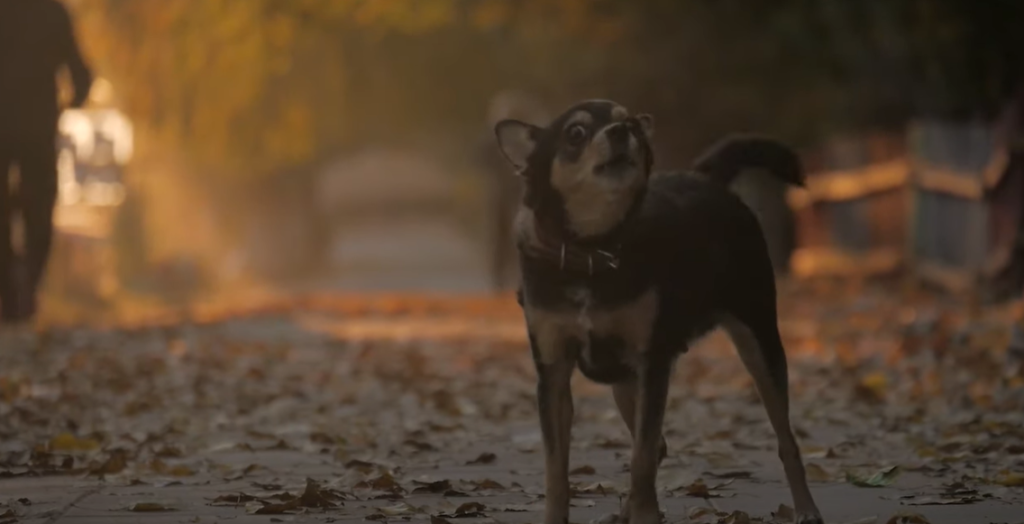
Why Does My Dog Bark When I Eat?
It is not uncommon for a dog to bark when their humans are enjoying a meal. This behavior might be confusing, but understanding why your pup does this can help you better address the issue.
Oftentimes, dogs bark when they’re feeling frustrated or protective of something that matters to them—in this case, food. Your pup might think that you’re trying to take away their food or resource, or they might be feeling jealous of all the attention you’re getting. Aside from possessiveness, your dog may bark due to hunger or anxiety
If your pup is barking out of possessive behavior, it’s important to establish rules and expectations around mealtime. Do not feed your dog from the table, and ensure that your pup’s meals are served separately with no interaction between you and the food. If your pup is anxious or overly excited during meal times, try distracting them with a toy or game.
It’s also important to take note of any changes in your pup’s behavior that might be contributing to the issue. If your dog appears anxious or uneasy during meal times, you may want to consider consulting with a veterinarian or animal behaviorist who can help identify and address any underlying issues.
Finally, if your pup is simply begging for food, ignore their barks and don’t give in. Dogs bark because it works—so if you give in and reward them for their barking, it reinforces the behavior. The best way to prevent your pup from barking is to ignore the behavior completely and never give in. [4]
FAQ
Why does my dog growl and bark at his food?
This behavior is often referred to as “food guarding” and can be a sign of anxiety or insecurity. Your dog may feel threatened if someone approaches their food bowl, so he is defending it with his barking and growling. Food guarding behavior can also be learned from other dogs in the home or from experiences in the past where food has been taken away.
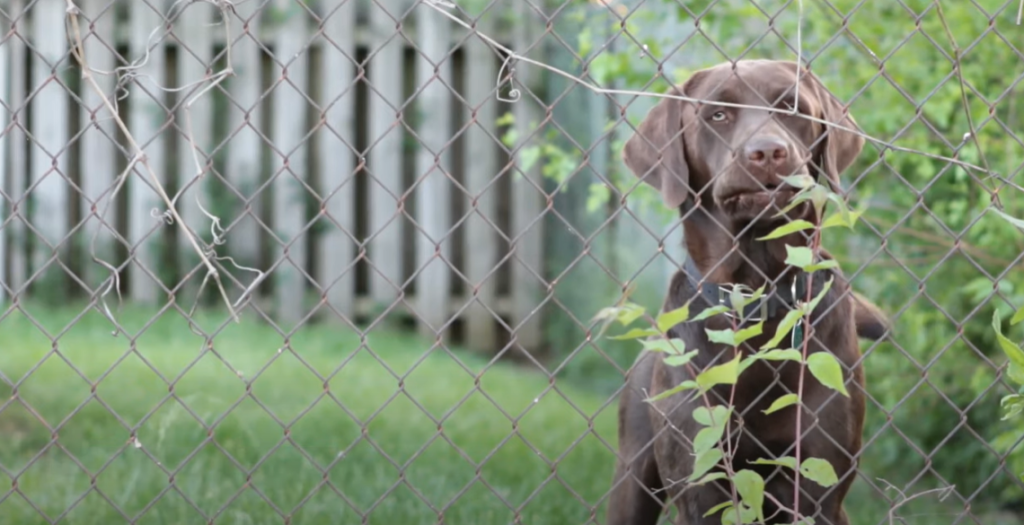
What do you do when your dog barks at food?
If your dog barks at food, it may be a sign that he is feeling anxious or stressed. It can also indicate learned behavior from the past. Many dogs bark when they are excited about receiving food and this could be another reason why your pup is barking at his food. To help your dog calm down before eating, take the time to practice some calming exercises. Start by having him sit and stay while you present his food. If he starts to bark, remove the food until he is calm. You can also provide a toy or chew bone to help redirect his attention away from the mealtime routine. When he stops barking, offer him the food again as a reward for his quiet behavior. Be sure to give him lots of praise and reward for behaving nicely at mealtime. This will help create a positive association with food and keep your pup from barking in the future.
Why does my dog bark at his empty food bowl?
Dogs bark for a variety of reasons. When it comes to barking at their food bowl, there are a few common causes. One of the most likely scenarios is that your pup has built up excitement and anticipation around mealtime, which results in him barking or whining when he sees his empty bowl. Another possibility could be fear or anxiety. If your pup has had a negative experience with his food bowl before, he may be barking in fear or unease when it’s time to eat. Finally, some dogs just bark out of habit. With enough repetition and reinforcement (positive or negative), they learn that barking will get them the attention they want–even if there’s nothing in their bowl.
How do I get my dog to stop barking at the dinner table?
If your dog is barking at the dinner table, it could be that he is feeling anxious or stressed around food. This can often happen if he has experienced being deprived of food in the past, or if there’s competition among other animals and people for his food. In most cases, you can help your pup stop barking by teaching him to feel more relaxed and comfortable around food.
Why is my dog aggressive with food?
Food aggression in dogs is a common behavior issue. It can be caused by fear, anxiety, competition for resources and even excitement. For example, if your dog feels threatened by other animals or people around him while eating, he may become aggressive to protect his food and keep everyone else away. He may also guard his food bowl out of fear that it may be taken away, or because he is excited and wants to keep the food all to himself.
What does food aggression look like in dogs?
Food aggression in dogs is a type of behavior where a dog displays signs of aggression towards another animal or person when they are near their food bowl. This can be exhibited through growling, snarling, baring of teeth and even snapping at an intruder. In some cases, the aggression may be targeted towards humans as well. If your dog is exhibiting these signs of aggression towards their food, it’s important to be aware and take appropriate steps to address the behavior.
Should I punish my dog for food aggression?
No, punishing your dog for food aggression is not recommended. Punishing your dog will only increase his anxiety and fear around the food bowl. If possible, arrange for an animal behavior consultant to come to your home to assess the situation. This will give you a better understanding of why your dog is displaying this type of aggression towards his food and provide you with the best approach to take in achieving a successful resolution.
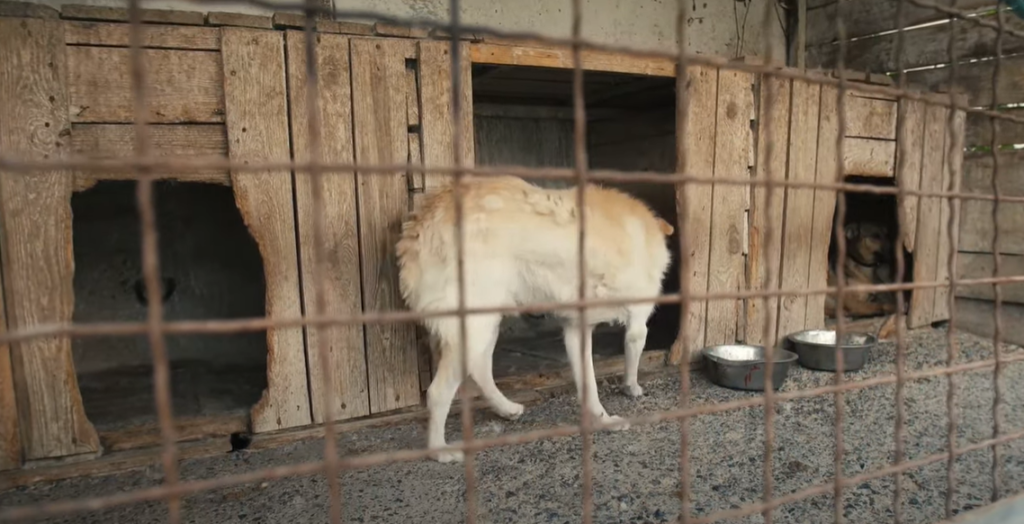
How do you punish food aggression in dogs?
Punishing food aggression in dogs can be a challenge, as it is important to prevent them from feeling scared or threatened by you. The best way to address food aggression is to remove the resource (in this case, food) and then use positive reinforcement techniques to reward desirable behavior. Start by providing your dog with their meals in separate bowls, and place them in a quiet room away from distractions. It’s important to give your dog space, so it’s best to feed them in an area with no other animals or people present.
How do you calm a dog with food aggression?
Food aggression in dogs can be difficult to manage, but there are things that you can do to help your dog learn better behaviors. It’s important to remember that punishing your dog for aggressive behavior will only make him more anxious and increase the chances of aggression in the future. The key is teaching your dog alternative behaviors and managing his environment so he feels safe and comfortable when it comes to food. Start by feeding your dog in a confined space, like his crate. This will help him to associate food with good things and give him a place to go that’s exclusively for eating. Before giving him his food, make sure he is calm and relaxed. You can do this by rewarding calm behavior with treats or positive reinforcement.
Useful Video: Why My Dog Won’t Eat Its food?
Conclusion
It is normal for your dog to bark at his food, especially if he is a big fan of it. If you find that his barking is becoming excessive or aggressive, consider consulting a professional to help him manage the behavior. With proper training and patience, your pup can learn to enjoy mealtimes without the disruption of barking. Remember that whether your pup is barking out of excitement or anxiety, he still needs to know the proper boundaries for meal times. Your pup will thank you for setting those limits and providing a positive reinforcement system. With clear expectations, your dog can learn to relax and enjoy meals again.
References:
- http://petclever.co/why-does-my-dog-bark-at-his-food/
- https://petkeen.com/why-does-dog-bark-at-his-food/
- https://dogtemperament.com/why-dogs-bark-food/
- https://petcosset.com/why-does-my-dog-bark-at-his-food/

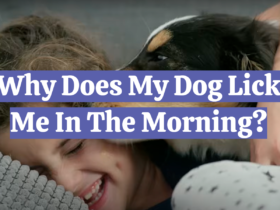
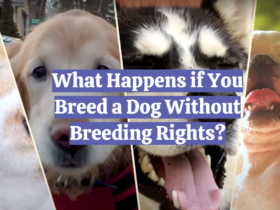


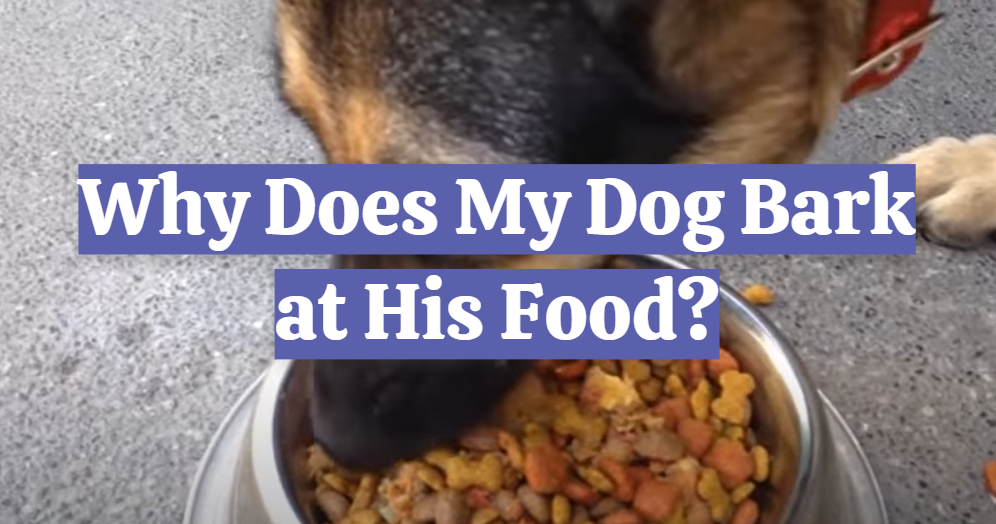
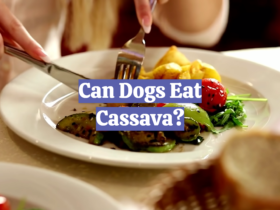


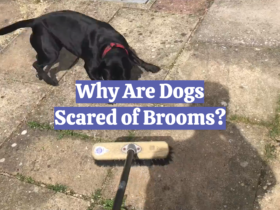
The daily ritual of my dog barking at his food has become a bit of a head-scratcher. Recently, I noticed that he does this more when I introduce a new type of dog food. It’s almost as if he’s expressing curiosity or maybe even a bit of skepticism about the unfamiliar scent or texture. This barking routine has turned into a quirky but predictable part of mealtime, and it’s amusing to witness how he vocalizes his thoughts on the latest addition to his menu.
My dog’s habit of barking at his food took an interesting turn during a busy week. As I juggled work deadlines and family responsibilities, I noticed him becoming more vocal during mealtime. It made me wonder if his barking was a way of seeking attention or expressing a need for a break in the midst of the hectic schedule. This unexpected communication through barking highlighted how dogs often convey their emotions and desires, even when it comes to something as routine as mealtime.
The barking spectacle during my dog’s meals recently caught my attention during a visit from a friend and her dog. Interestingly, my dog seemed to amplify his barking when the other dog approached his bowl. It made me think that, beyond expressing his feelings about the food, the barking might also serve as a protective signal, indicating a sense of ownership over his meals. This social aspect of his barking provided a glimpse into the nuanced dynamics of canine communication.
One puzzling scenario unfolded when I switched my dog’s food to a more nutritious option. Instead of the usual excitement, he barked persistently at the new food. This made me consider that perhaps the change in ingredients or flavors triggered his vocal response. It’s as if he was communicating his preferences or maybe even registering a protest against the healthier but less flavorful option. This incident shed light on how dogs, much like humans, have distinct tastes and preferences when it comes to their meals.
Exploring the reasons behind my dog’s food barking led me to the discovery that it could be a manifestation of his natural hunting instincts. When I introduced puzzle feeders or hid small treats in his meal, he would bark while trying to uncover the hidden treasures. It added an element of mental stimulation to his meals, turning them into engaging activities. Recognizing and accommodating this instinctual behavior not only reduced the barking but also contributed to his overall mental well-being. It’s a fascinating reminder of the complex cognitive abilities that dogs possess and how we can tap into them to enhance their daily experiences.
The barking saga took an unexpected twist when I tried incorporating puzzle feeders into my dog’s mealtime routine. Instead of the usual straightforward eating, he barked intermittently while tackling the food puzzle. It made me realize that, for him, the act of solving the puzzle was not just about getting to the food but also a form of mental stimulation. The barking, in this context, became a vocal expression of his engagement and enthusiasm for the interactive feeding experience. It’s a reminder of how dogs appreciate not just the taste but also the mental challenges that come with their meals.
It’s quite amusing but also perplexing when my dog barks at his food. At first, I thought he was just excited, but after observing closely, I realized it might be his way of expressing dissatisfaction or eagerness. There were times when he barked more if I changed his regular food brand or introduced something new to his bowl. It made me wonder if he was trying to communicate his preference or discomfort with the change. To address this, I started introducing new foods gradually, and the barking reduced. It’s fascinating how dogs communicate their feelings even about something as simple as their meals.
I’ve noticed my dog barking at his food bowl when he’s feeling anxious or stressed. It took me a while to connect the dots, but during particularly busy or noisy days, he would exhibit this behavior more frequently. It seems like his way of seeking attention or expressing unease. I started making feeding time a calm and quiet experience, and the barking decreased. It’s incredible how attuned dogs are to their environment and how their behavior can reflect their emotional state. Understanding these cues has not only improved mealtime but also strengthened our bond.
For my furry friend, barking at his food turned out to be a sign of dental issues. I noticed he would bark more when trying to eat hard kibble. Concerned, I took him to the vet, and it turns out he had some dental discomfort. Switching to softer or wet food made a significant difference, and the barking diminished. This experience taught me the importance of paying attention to changes in eating behavior as it could be indicative of underlying health issues. Now, I’m more mindful of his dental health and ensure his meals are tailored to his needs.
My dog’s food barking turned out to be a quirky habit related to excitement. Whenever I brought out his favorite treats or mixed in something special with his meal, he couldn’t contain his joy and would bark as if saying, “Hurry up, let’s dig in!” It became a delightful routine, and I started associating the barking with his enthusiasm for certain foods. It’s a reminder that dogs, like us, have their own unique personalities and ways of expressing joy, even if it’s through a series of excited barks before a delicious meal.
One peculiar reason I discovered for my dog barking at his food was related to temperature preferences. During colder months, he seemed less interested in his regular dry food and would bark until I added something warm or a bit of broth. It was as if he wanted a cozy meal to match the weather. Adjusting the temperature of his food, especially in winter, made a noticeable difference in his eagerness to eat. It’s interesting how environmental factors can influence a dog’s mealtime behavior, and adapting to these preferences has made our shared mealtimes more enjoyable for both of us.